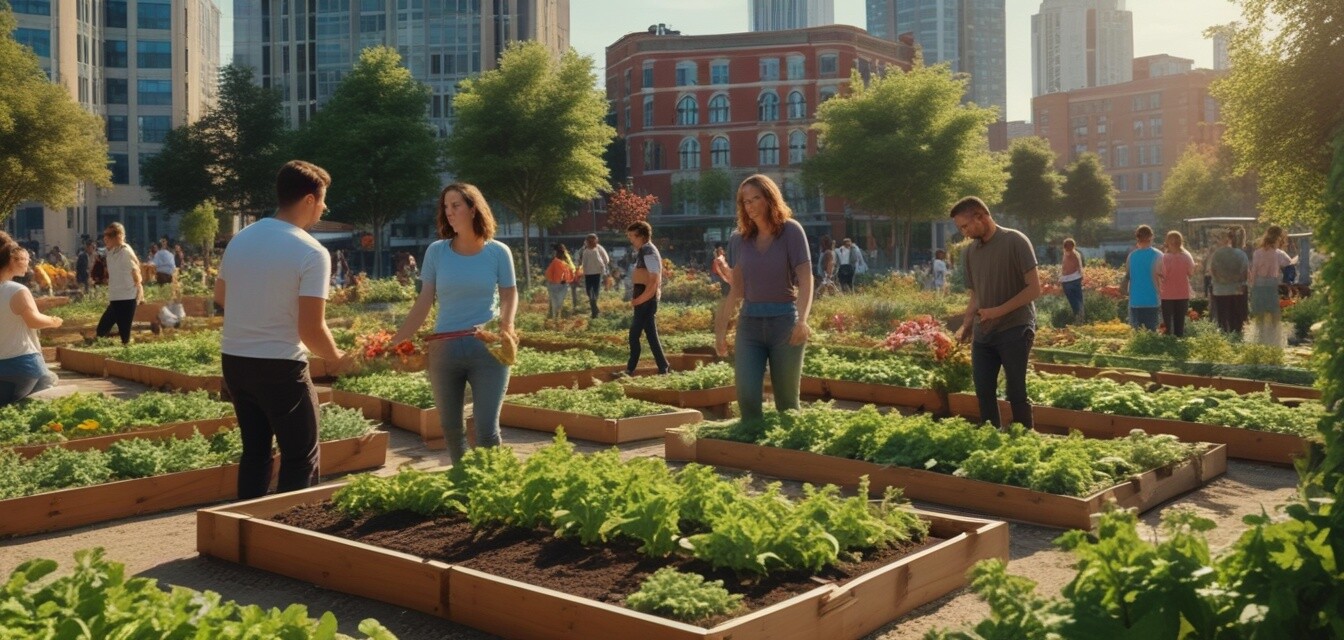
How gardening shapes sustainable communities
Key Takeaways
- Community gardens promote social cohesion and teamwork.
- Gardening initiatives enhance food security by providing fresh produce.
- Urban gardening fosters biodiversity and green spaces.
- Gardening education empowers residents with sustainable practices.
- Local gardening projects can improve mental health and well-being.
Gardening has long been recognized as a valuable hobby and pastime. However, beyond the simple joys of planting and nurturing, gardening initiatives are playing a vital role in building sustainable communities and enhancing food security. This article explores how such efforts contribute to social cohesion, environmental sustainability, and better health within our society.
The role of community gardening
Community gardens serve as a hub for residents to connect with one another, share resources, and pool their gardening knowledge. They can transform vacant lots into flourishing green spaces, promoting both social interaction and local biodiversity.
Social cohesion through gardening initiatives
Engaging in gardening helps foster a sense of community identity. Residents often come together to work on joint gardening projects, strengthening neighborhood ties. Here are some benefits of social involvement in community gardens:
| Benefit | Description |
|---|---|
| Building friendships | Working alongside neighbors creates lasting relationships. |
| Learning opportunities | Gardeners exchange knowledge on various practices and techniques. |
| Shared responsibility | Community initiatives encourage accountability and pride in teamwork. |
| Creating inclusive spaces | Gardens invite people from various socio-economic backgrounds to participate together. |
Enhancing food security
Access to fresh and healthy foods remains a growing concern in many areas. Community gardens directly address this issue by providing local produce. Consider the following aspects:
- Increased availability of fresh fruits and vegetables.
- Cost savings for residents by reducing grocery expenses.
- Education on better nutrition and healthy eating habits.
- Reduction of food deserts in urban settings.
Environmental benefits of urban gardening
Gardening in urban settings has a positive impact on the environment. Here are some benefits of urban gardening initiatives:
| Environmental Benefit | Description |
|---|---|
| Biodiversity | Gardens attract a variety of pollinators and beneficial insects, enhancing local ecosystems. |
| Air quality improvement | Plants help filter pollutants and improve atmospheric conditions. |
| Green spaces | Gardens contribute to green areas, mitigating the urban heat island effect. |
| Stormwater management | Soil and plants absorb rainwater, reducing runoff and flooding risks. |
The importance of education in gardening
Education goes hand in hand with gardening initiatives, empowering residents with skills and knowledge to cultivate their gardens sustainably. Activities include:
- Workshops on organic gardening techniques.
- Training on composting and waste management.
- Classes on plant selection and crop rotation.
- Insights into sustainable pest management.
Improving mental health through gardening
Not only does gardening provide access to fresh food, but it also leads to mental and emotional well-being. Participation in gardening activities can:
- Reduce stress and anxiety levels.
- Promote physical activity and health.
- Provide a sense of purpose and achievement.
Pros
- Encourages community involvement and teamwork.
- Improves access to quality produce.
- Benefits the environment and promotes biodiversity.
- Provides educational opportunities for sustainable practices.
Cons
- Requires ongoing maintenance and commitment from participants.
- Potential clashes between community members over garden management.
- May necessitate funding or resources to start projects.
Conclusion
Gardening initiatives offer numerous benefits that positively shape sustainable communities while enhancing food security. By investing in these efforts, the community can foster social connections, promote environmental sustainability, and improve public health. Ultimately, as we nurture our gardens, we also nurture our communities for a brighter, healthier future. Stay informed about the latest trends in gardening practices by exploring our News and Trends section.